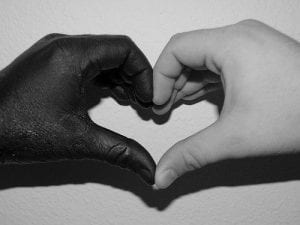
Victoria’s Secret Models (George-Parkin, 2018)
It’s no secret that Hollywood portrays women in an unrealistic light. Women in Hollywood are often subject to sexist ideals that they should fit into a certain mold as an “ideal woman,” and when they do not, there is serious backlash. Hollywood has a long history of favoring thin women. Victoria’s Secret Fashion Show is known for their extremely thin models, further pushing the idea that thin means beautiful. Victoria’s Secret has been accused of lacking in size diversity. For example, “One hurdle may be the fact that Victoria’s Secret simply doesn’t carry sizes larger than 40DDD in bras and an XL (equivalent to a size 16) in panties and apparel, meaning many, if not most plus-size models, are already sized out of the line,” (George-Parkin, 2018). Victoria’s Secret is a major brand that has influence on women around the world. Their lack of size diversity only contributes to the idea that women have to be thin to be beautiful.

Adele Before and After Weight Loss (Times of India, 2020)
Another example of Hollywood’s thin body ideals can be seen when actresses have noticeable weight changes. When actresses lose weight, such as Adele and Rebel Wilson, they are praised for their “new” body. However, many are quick to comment that these women were beautiful before, asking: why did it take them to become Hollywood’s idea of thin to be considered beautiful and receive so much attention? Hollywood’s favoring of thin women further perpetuates sexism in the media. Women are seen as less worthy, less beautiful, and less interesting when they do not adhere to Hollywood’s body standards.
Adding to the issues of sexism, Hollywood also has deep roots in racism. White actors, actresses, directors, producers and more disproportionately receive praise and awards for their work, while people of color in Hollywood are often overlooked, no matter how talented they may be. In 2015, the hashtag #OscarsSoWhite began trending after all 20 acting nominations were awarded to white actors (Negley, 2020). In 2016, all 20 Oscar nominations in the acting categories went to white actors again. Cheryl Boone Isaacs, the President of the Oscars at the time, stated “The statistics showed that our membership was 94 percent white and 77 percent male. People would say to me that it wasn’t on purpose, and I would ask them: Are you sure?” (Negley, 2020).

Amandla Stenberg and Zendaya (Kent, 2018)
Women of color are subject to both racism and sexism in Hollywood. Hollywood has had an issue with colorism, favoring lighter-skinned actresses over darker-skinned actresses. This issue has been brought to light, as many individuals have commented on Hollywood’s repeated use of light-skin actresses, such as Zendaya and Amandla Stenberg, and lack of use of dark-skin actresses. Referring to colorism, Zendaya said “I am Hollywood’s, I guess you could say, acceptable version of a black girl and that has to change,” (Vagianos, 2018). Zendaya has recognized her privilege as a light-skinned black woman and calls for Hollywood to cast more dark-skinned black women.

Lizzo (Crawshaw-Sparks, Munkittrick, & Shenai-Khatkhate, 2021)
Hollywood still has a long way to go to become more inclusive and representative. However, there are women in Hollywood who are leading the way to make this happen. Lizzo, for example, is a major advocate for body positivity. Lizzo received a flood of hateful messages regarding her weight and race after releasing her latest single, “Rumors.” Eventually, Lizzo went on Instagram Live, breaking down because of the comments. Lizzo went on to say “My head is always up. Even when I’m upset and even when I’m crying, my head is up,” (Blake, 2021). She also tweeted pictures of herself with the caption “Just reminding myself that I’m the finest b**** in the universe and can’t nobody convince me otherwise not even myself.” Lizzo reminded the world what female empowerment is all about. It is about loving yourself and not letting anyone change who you are. Lizzo has the mindset that all women need to have. Every woman is beautiful in her own unique way, no matter her race or size.
So, I will end this blog post with a quote from Lizzo for all us women to remember: “Never ever let somebody stop you or shame you from being yourself.”
Sources
Blake, C. (2021, August 29). Lizzo shares BODY positive post on social media in response to haters. HotNewHipHop. https://www.hotnewhiphop.com/lizzo-shares-body-positive-post-on-social-media-in-response-to-haters-news.138287.html.
Crawshaw-Sparks, S., Munkittrick, D., & Shenai-Khatkhate, A. (2021, May 11). The “Truth Hurts”: Judge Rules Lizzo is 100% that [copyright owner]. The National Law Review. https://www.natlawreview.com/article/truth-hurts-judge-rules-lizzo-100-copyright-owner.
George-Parkin, H. (2018, November 9). Where are all the curvy models on the Victoria’s secret runway? Glamour. https://www.glamour.com/story/victorias-secret-fashion-show-body-diversity.
Kent, C. (2018, September 6). Young Hollywood has a colorism problem that can’t be ignored. BET.com. https://www.bet.com/celebrities/news/2018/09/06/young-hollywood-colorism.html.
Times of India. (2020, May 20). Weight loss: 3 things that helped Adele lose 22 kilos, according to her personal trainer. The Times of India. https://timesofindia.indiatimes.com/life-style/health-fitness/weight-loss/weight-loss-3-things-that-helped-adele-lose-22-kilos-according-to-her-personal-trainer/photostory/75807057.cms?from=mdr.
Ugwu, R. (2020, February 6). The hashtag that changed the Oscars: An oral history. The New York Times. https://www.nytimes.com/2020/02/06/movies/oscarssowhite-history.html.
Vagianos, A. (2018, April 23). Zendaya on colorism: ‘i am hollywood’s acceptable version of a black girl’. HuffPost. https://www.huffpost.com/entry/zendaya-colorism-hollywood_n_5ade10eae4b0df502a4e529f.


Leave a Reply